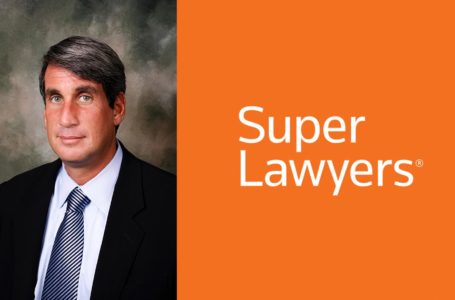The hip-hop trio says it was “cheated out of millions of dollars” through excessive commissions and bad deals.
Migos are suing their longtime talent lawyer for allegedly taking “excessive fees” without a proper written agreement and failing to disclose conflicts of interest arising from his representation of their label.
Quavious Marshall (Quavo), Kiari Cephus (Offset) and Kirsnick Ball (Takeoff) have sued Damien Granderson along with his current firm, Granderson Des Rochers, and his previous one, Davis Shapiro, alleging they were “robbed and cheated out of millions of dollars” by the people they trusted to look out for their best interests.
“Granderson was working with Migos since the group’s early days, including on the 2014 deal to have 300 Entertainment distribute Migos’ debut album, Yung Rich Nation,” writes attorney Bryan Freedman [who is representing Migos, of Freedman + Taitelman, LLP] in the complaint, which is posted below. “At that time, the group’s members were in their late teens and early twenties, and had nothing more than a high school education.”
Freedman argues Granderson saw them as “easy targets” and coaxed them into a one-sided deal for the benefit of a higher-priority client, Quality Control Music. (QCM had signed the Migos to a recording agreement in 2013.) The attorney failed to disclose the conflict, according to the suit, and instigated a legal dispute with 300 to move the group to Capitol Records.
“Granderson later exacerbated the harm he caused to Migos by negotiating a 2018 amendment to the exclusive label agreement between QCM and Capitol Records,” writes Freedman. “That amendment triggered an extension of the exclusive recording agreement between QCM and Migos, which Granderson knew to contain terms that were unconscionable for Migos.”
Those terms, according to the suit, include a clause that would require the Migos to render services directly to Capitol if the band ended its relationship with QCM, and it was drafted in a way that financially disincentivized it from doing so. Writes Freedman,
Granderson effectively prevented his other client – Migos – from ever being free of paying excessive compensation to QCM, from ever being signed to any other record label, and from ever obtaining negotiating leverage to secure reasonable terms in connection with the distribution of its musical recordings.
Bryan Freedman, of Freedman + Taitelman, LLP
The Migos also allege that Granderson made mistakes in drafting agreements and practiced law without a California license five years after moving to Los Angeles. (Davis Shapiro, his employer before he launched his own firm in 2019, previously had offices in both New York and L.A.)
The band is suing for professional malpractice, breach of fiduciary duty, violation of California Business & Professions Code 6147 and 6148 (which require contingency fee agreements to be made in writing), unfair competition and unjust enrichment. They’re seeking a declaration that the 5 percent contingent fee agreement is invalid as well as restitution and punitive damages.
Granderson has not yet responded to a request for comment on the complaint.
Quality Control Music CEO Pierre “Pee” Thomas on Wednesday posted a lengthy statement on Instagram in response to the lawsuit. “It is unfortunate that the same people that we have worked hard for, provided opportunities for, and championed for are now alleging that we have participated in any kind of immoral or unfair business practices or took advantage of them and their careers,” it reads, in part. “I will not stand by and let Quality Control Music’s reputation and everything we have built and sacrificed be tarnished by allegations of unfair and unjust business practices. … I understand in this business that you are not always going to end with the people you started with. I say that to say, I am not forcing anybody to be in business with us that has a problem and cannot communicate and does not want to work as a unit. Everything is negotiable.”





